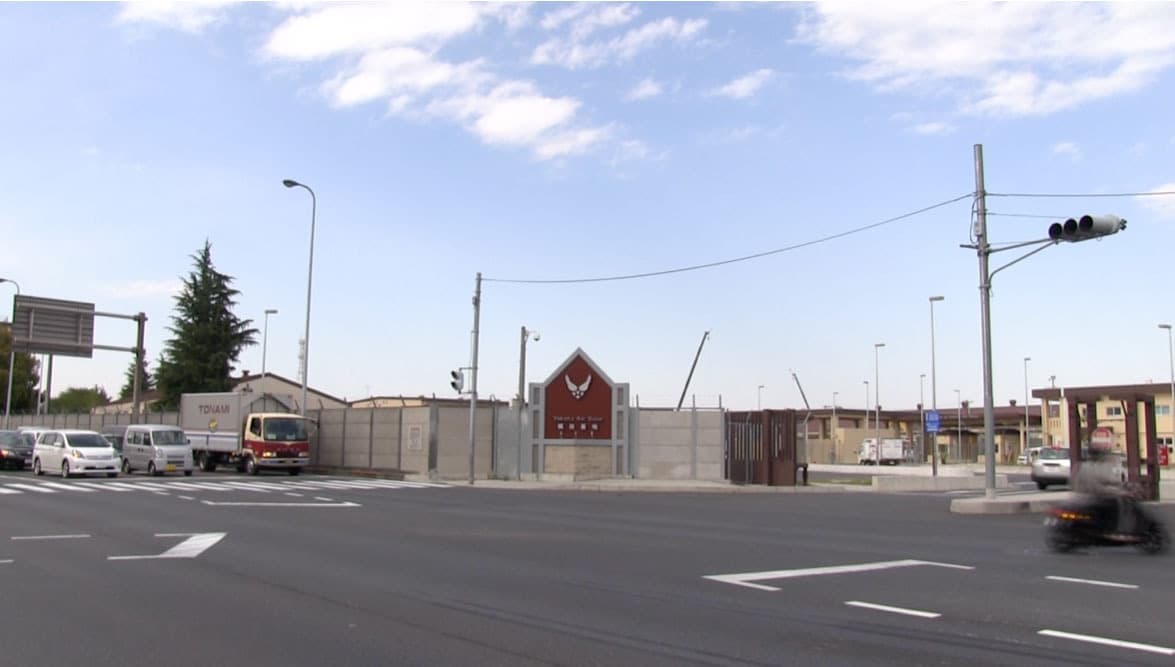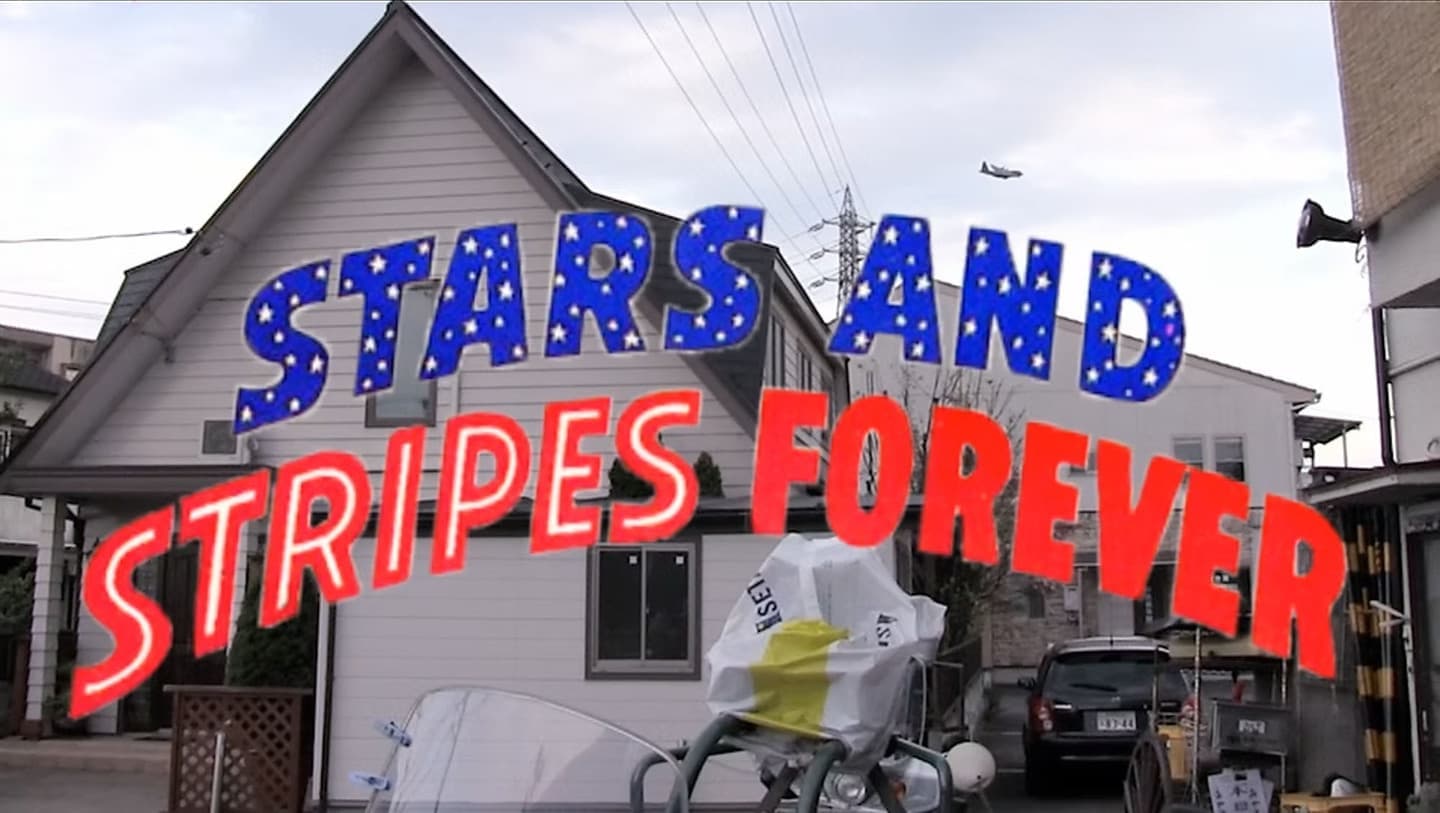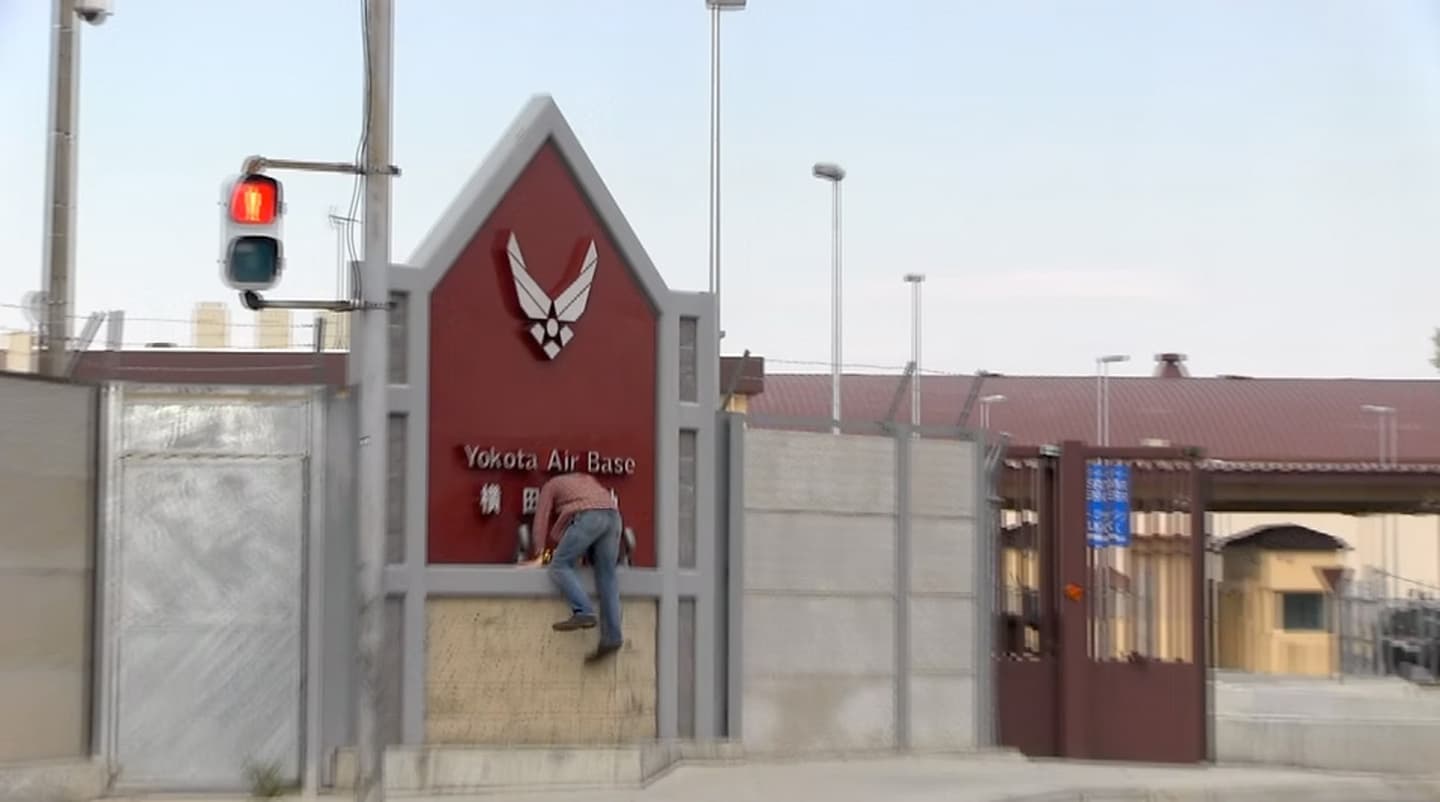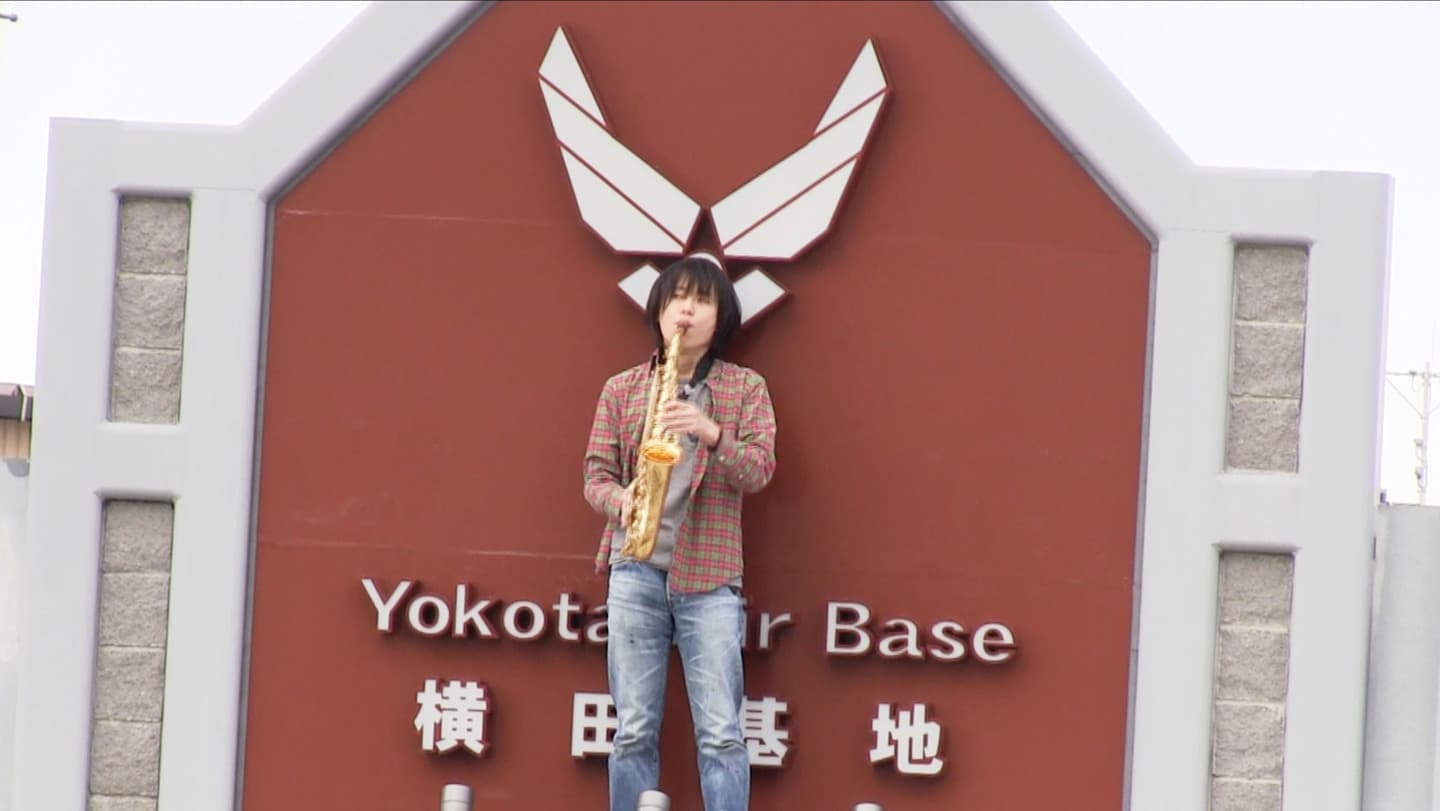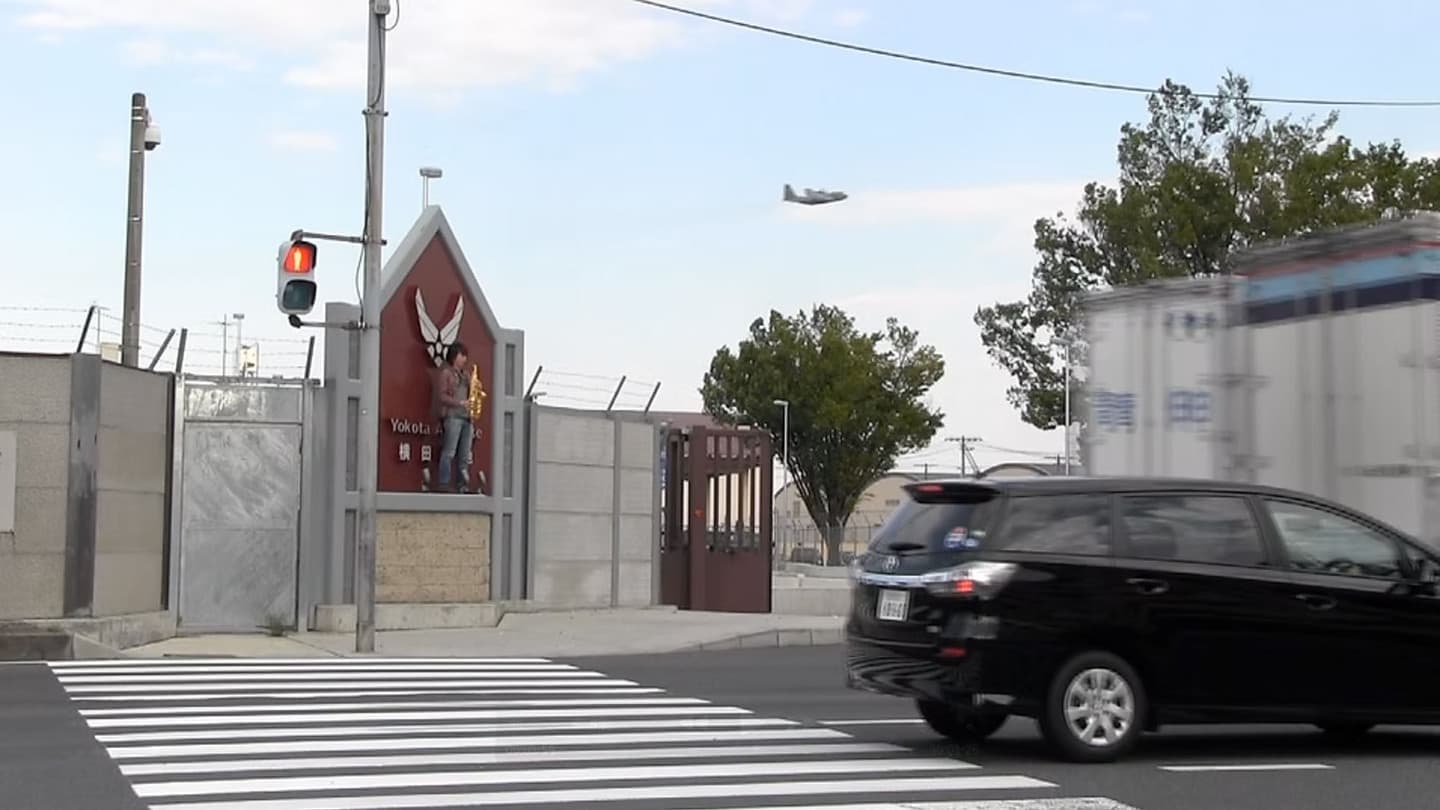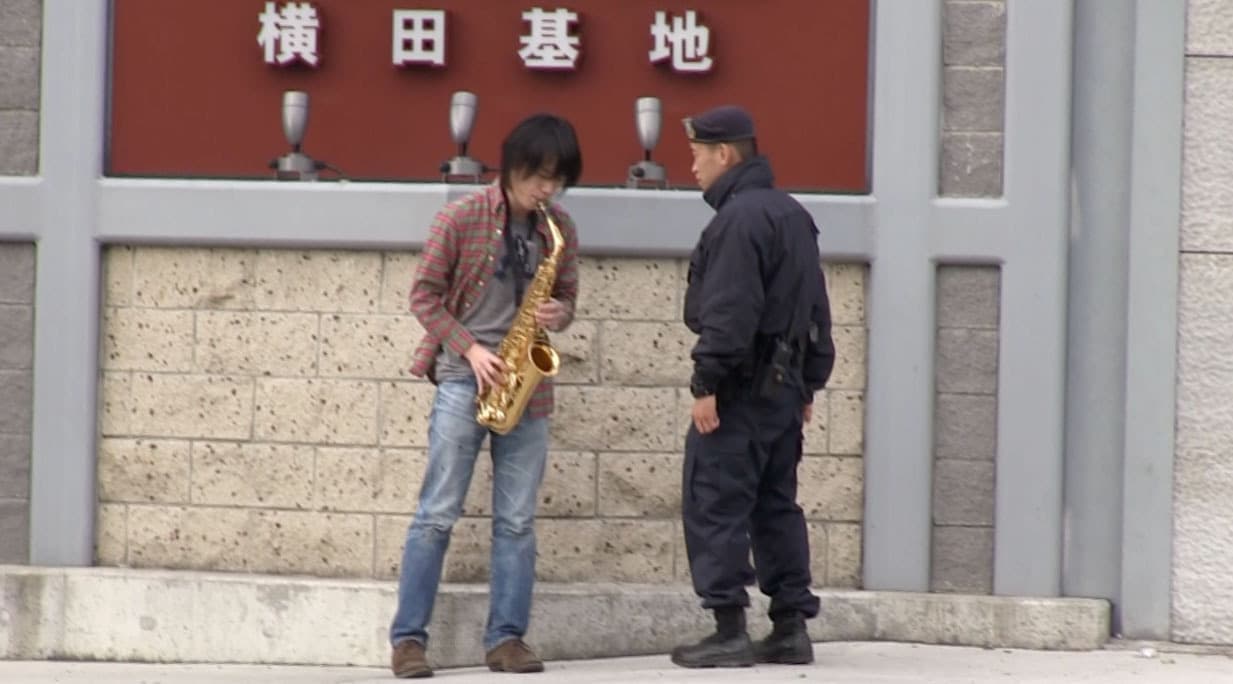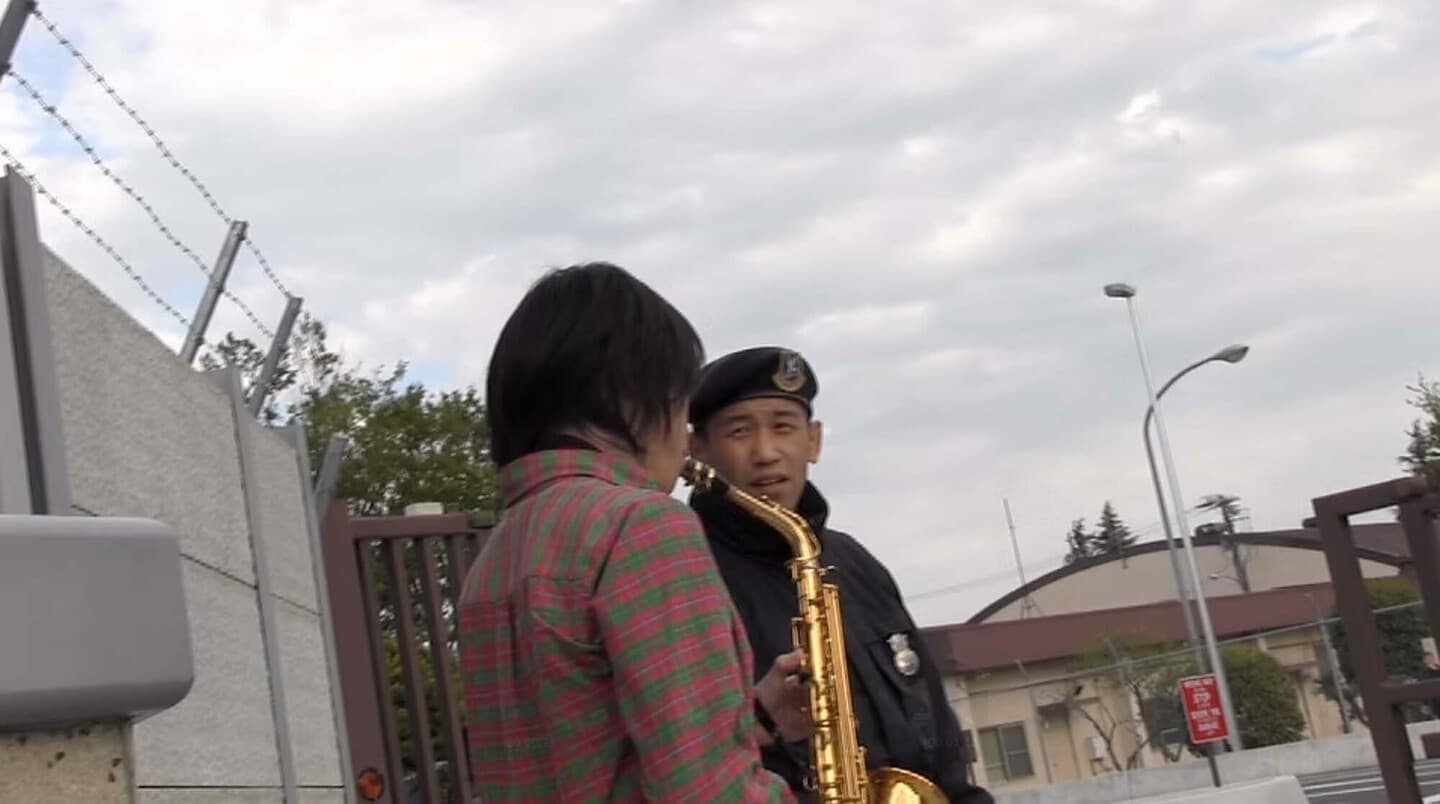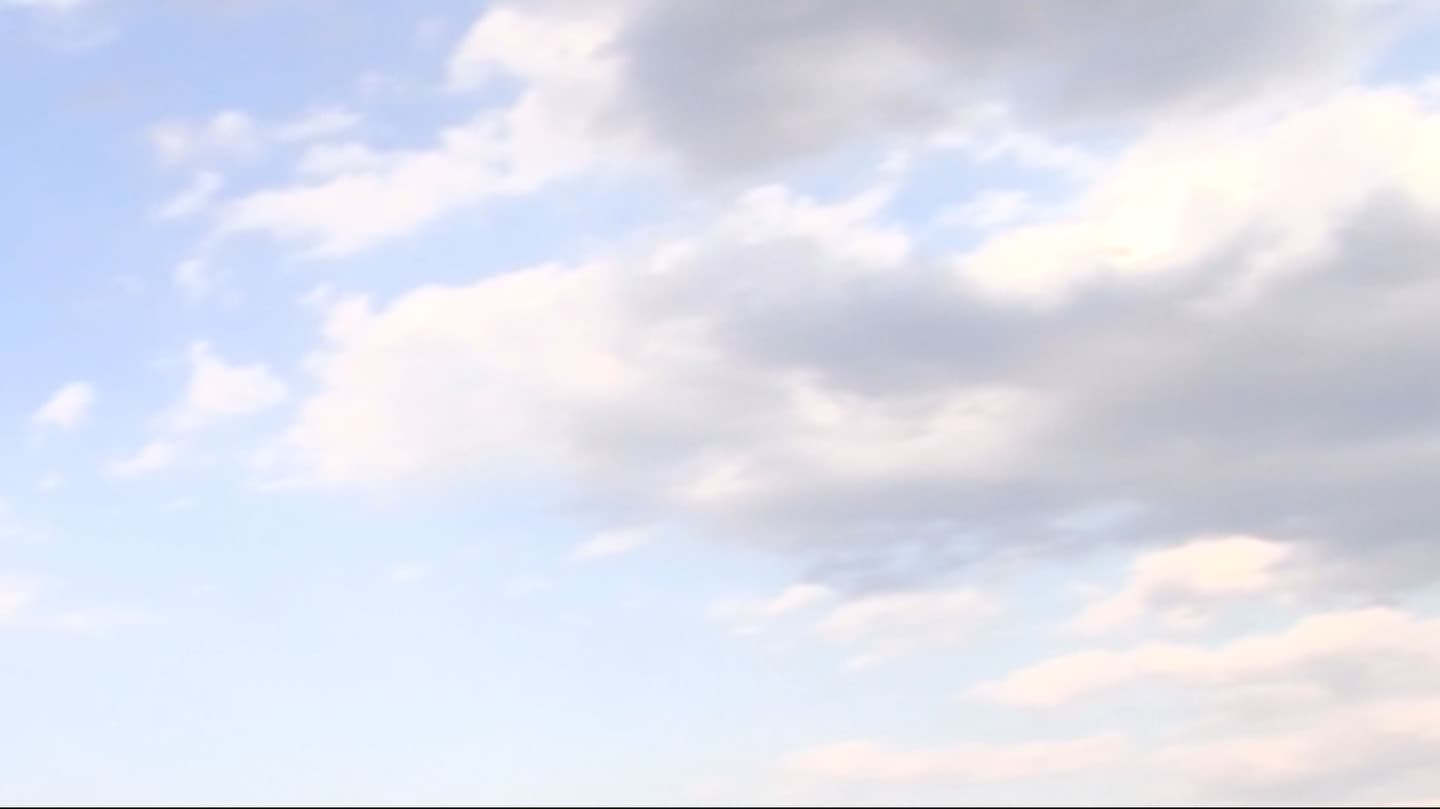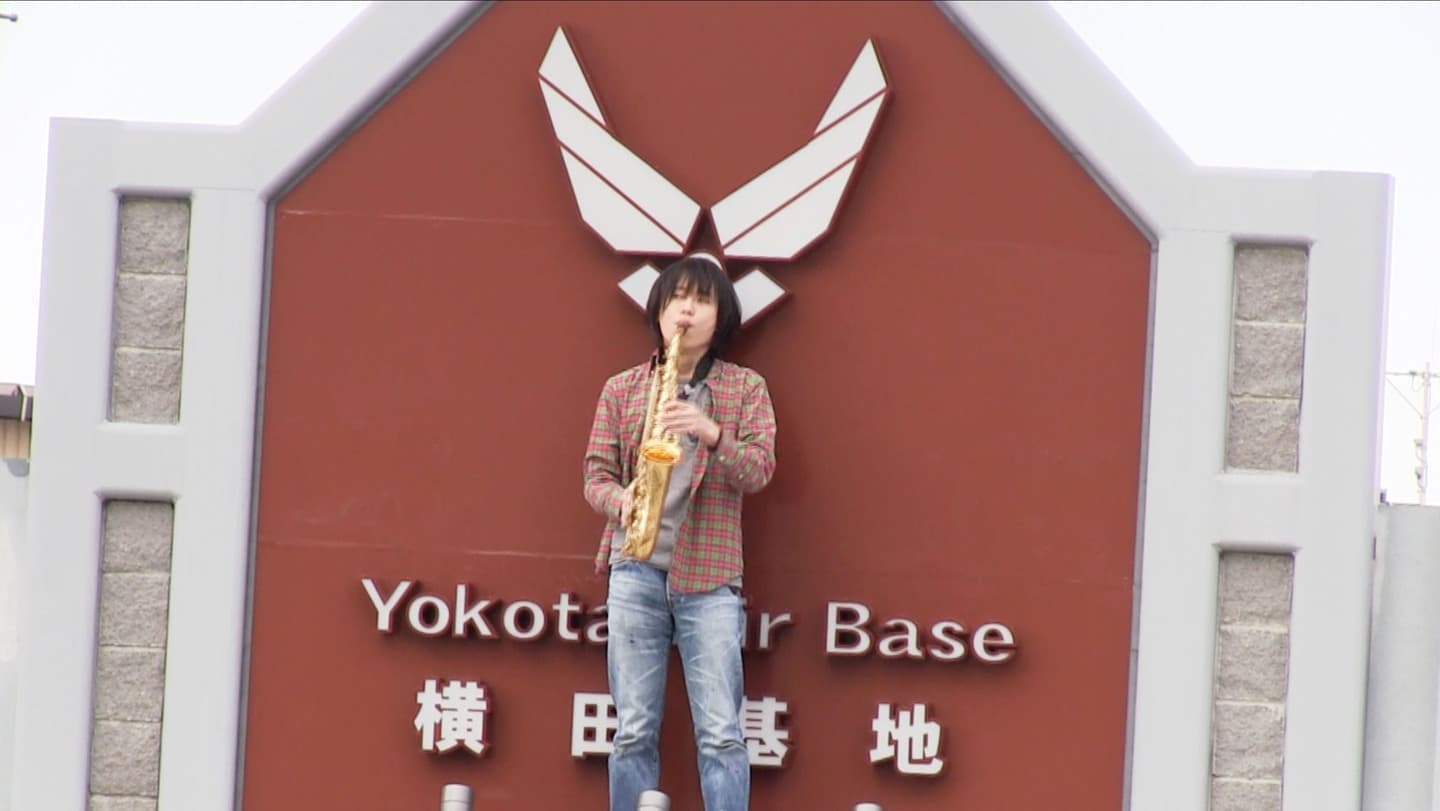
《Stars and Stripes Forever》
2013
Single channel video / 7 min 26 sec
東京・福生にある米軍横田基地のゲートによじ登り、サックスでアメリカ合衆国の第二の国歌ともいわれるマーチ「星条旗よ永遠なれ(Stars and Stripes Forever)」を吹き続ける。
そのうち基地内から警告の怒号が飛ぶが、それでも吹き続ける。やがて航空自衛隊の人が出てきて止めに入る。それでも「星条旗よ永遠なれ」を吹き続けながら、基地を後にする。
東京にある「米軍基地」に初めて訪れた私は、その物々しさと異質な雰囲気に慄いた。
そしてこれまで「米軍基地」と自らの生活と直接に関係がないかのように感じていた自分を顧みた。あまりにも巨大な「米軍基地」に対して、身体的・個人的に接触し、反応を感じたいと思った。
そんな中で、私は小学校から高校生まで9年間吹奏楽部に在籍していて、アメリカを讃えるマーチを幾度となく演奏していたことを思い出した。それはいまだに楽譜を見なくても演奏できるほどに身についていた。当時はその曲の意味についてほとんど何も考えていなかったが、その曲を基地の入口で“何があっても”吹き続けることに決めた。
I climbed the gate of Yokota Air Base, a U.S. military base in Fussa, Tokyo, and began playing The Stars and Stripes Forever, a march often referred to as the second national anthem of the United States, on the saxophone.
Before long, angry shouts of warning came from inside the base.
Still, I kept playing.
Eventually, a member of the Japan Air Self-Defense Force came out and tried to stop me.
Even then, I continued playing The Stars and Stripes Forever as I walked away from the base.
It was my first time visiting a "U.S. military base" in Tokyo, and I was struck by its overwhelming presence and unfamiliar atmosphere.
I reflected on how I had always felt that these bases had nothing to do with my own life.
But faced with the immense scale of the base, I felt a strong urge to make physical, personal contact with it and experience a reaction of my own.
At that moment, I remembered that I had played in the school brass band from elementary through high school, for nine years, and had performed marches that praised America countless times.
One of those pieces had become so ingrained in me that I could still play it without looking at the score.
Back then, I had never really thought about the meaning of the music.
So I decided I would stand at the entrance of the base and keep playing that song, no matter what happened.
